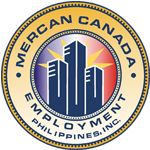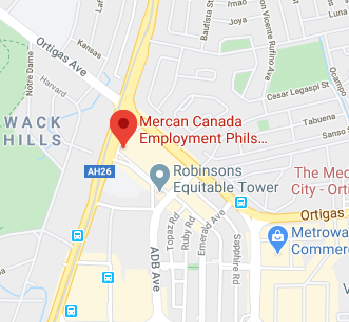In keeping with its humanitarian tradition and international obligations, Canada provides protection to people in and outside of Canada who face persecution in their home country or the country where they normally live, or who would face persecution if they returned to that country. Canada provides protection to thousands of people every year and this compassion and generosity is a source of great pride amongst Canadians.
Groups and individuals can sponsor refugees from abroad who qualify to come to Canada.
REFUGEE CLASS
Refugees and people needing protection are people in or outside Canada who fear returning to their home country. Canada offers refugee protection to people in Canada who fear persecution or whose removal from Canada would subject them to a danger of torture, a risk to their life or a risk of cruel and unusual treatment or punishment.
Who can apply
Canada provides refugee protection to people if they meet the United Nations (UN) definition of a Convention Refugee or if they are a person in need of protection.
DEFINITION
Convention refugees are people who are outside their home country or the country where they normally live, and who are unwilling to return because of a well-founded fear of persecution based on:
- Race
- Religion
- Political opinion
- Nationality or
- Membership in a particular social group but is not limited to, sexual orientation, gender identity, domestic violence and HIV status.
A person in need of protection is a person in Canada who must show that if they return to their home country or country where they normally live would subject them personally to:
- A danger of torture;
- A risk to their life; or
- A risk of cruel and unusual treatment or punishment.
DETERMINE YOUR ELIGIBILITY
ELIGIBILITY FOR REFUGEE STATUS FROM INSIDE CANADA
Some people are not eligible to claim refugee protection in Canada. Officers receiving the refugee claim will decide whether it is eligible for referral to the Immigration and Refugee Board of Canada (IRB), an independent administrative tribunal that makes decisions on immigration and refugee matters. The IRB decides who is a Convention refugee or a person in need of protection.
Your refugee claim may not be eligible for referral to the IRB if:
- You have been recognized as a Convention refugee by another country to which you can return;
- You have already been granted protected person status in Canada;
- You arrived via the Canada-United States border (refer to Safe Third Country Agreement below);
- You are not admissible to Canada on security grounds, or because of criminal activity or human rights violations;
- You made a previous refugee claim that was found to be ineligible for referral to the IRB;
- You made a previous refugee claim that was rejected by the IRB; or
- You abandoned or withdrew a previous refugee claim.
Safe Third Country Agreement
Under an agreement with the United States, refugee claimants must seek asylum (protection) in the first safe country where they arrive. For example, if you entered Canada at a land border from the United States, you will not be able to claim refugee protection in Canada. There are however some exceptions to the Agreement which take considerations the importance of family unity, the best interests of children and the public interest.
There are four types of exceptions:
- Family member exceptions
- Unaccompanied minors exception
- Document holder exceptions
- Public interest exceptions
Even if they qualify for any of these exceptions, refugee claimants must still meet all other eligibility criteria of Canada’s immigration legislation, i.e. IRPA and IRPR.
How to Apply
There are two ways to apply for refugee status in Canada:
- You can apply for refugee status at any port of entry, such as an airport, seaport or land border. The officer you make your refugee claim to will decide if your claim is eligible to be referred to the Immigration and Refugee Board of Canada (IRB)
- You can make a refugee claim in Canada at designated Immigration, Refugees and Citizenship Canada (IRCC) offices. If the officer decides that your refugee claim is eligible, you will be given a date for your IRBÂ hearing.
ELIGIBILITY FOR RESETLLEMENT FROM OUTSIDE CANADA
People who can be resettled from outside Canada fall into two classes:
Convention Refugees Abroad Class
You must meet the definition of a Convention Refugee in the 1951 United Nations Convention Relating to the Status of Refugees. Refer to definition of a Convention Refugee above. Moreover, you must be:
- referred by the United Nations High Commissioner for Refugees (UNHCR) or another referral organization, or be sponsored by a private sponsorship group, and
- selected as a government-assisted or privately sponsored refugee, or have the funds needed to support yourself and any dependents after arrival in Canada.
Country of Asylum Class
The Country of Asylum Class is for people who do not qualify as Convention refugees however in a refugee-like situation. You are eligible to apply under the Country of Asylum Class if you are:
- Â outside your home country or the country of your habitual residence;
- continuing to be, seriously and personally affected by civil war or armed conflict, or have suffered massive violations of human rights.
Furthermore, you must also be:
- referred by the United Nations High Commissioner for Refugees (UNHCR) or another referral organization, or be sponsored by a private sponsorship group, and
- privately sponsored, or have the funds needed to support yourself and any dependents after arrival in Canada.
In addition, you will have to pass a medical exam and security and criminal checks.
SPONSORING REFUGEE
Each year, millions of people around the world are forced to flee their homelands to escape persecution, war or severe human rights abuses. Often these people are never able to return home. Groups and individuals can sponsor refugees from abroad who qualify to come to Canada. Sponsors are responsible for providing financial settlement assistance (except for Joint Assistance Sponsorship cases) for refugees once they arrive in Canada. Sponsors must also provide emotional and significant settlement assistance for the duration of the sponsorship period. Most sponsorships last for one year, but some refugees may be eligible to receive assistance from their sponsors for a longer period of time.
Refugees must qualify for entry under Canada’s laws and must pass medical and security checks before they can come to Canada.
There are two ways to sponsor refugees:
- Private Sponsorship of Refugees Program
- Joint Assistance Sponsorship


